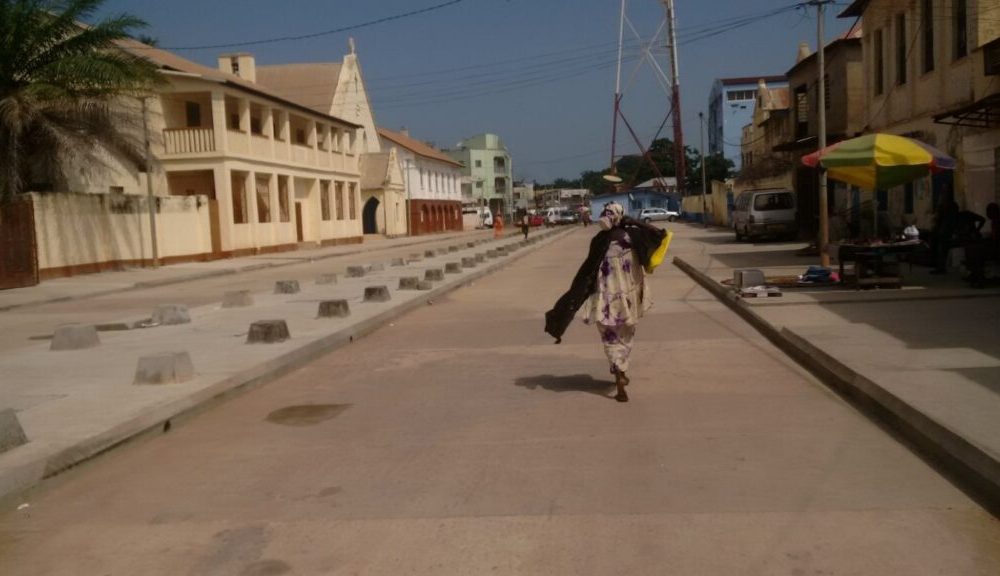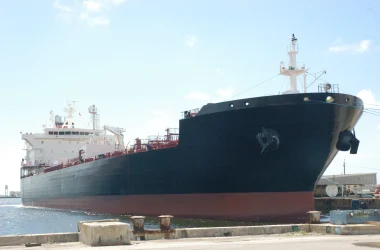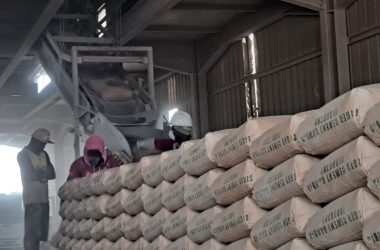The durability of the Gambia government-constructed roads has come under increasing public scrutiny with some Gambians accusing the Barrow administration of “wasting” billions of taxpayer money in “shoddy” road construction works.
When the current minister of information Dr. Ismaila Ceesay hauled the Barrow government over the coals some years ago for constructing roads in the Gambian capital, which, he said, “are not futuristic,” some had thought Mr. Ceesay was unfair in his criticism of the Banjul Road Project. However, minister Ceesay’s opinion is now shared by a good chunk of the population few years down the line. There is currently this consensus in a lot of quarters that the central government is wasting billions of dalasi on “not-futuristic” roads.
Consequently, some Gambians, who spoke to JollofNews, launched an appeal to the NPP administration to take a pause in its road construction, look back and identify the variables responsible for the short lifespans of the government-built roads.
Speaking in his capacity as the leader of the Citizens’ Alliance party a few years ago, Dr. Ceesay indicated to this reporter that the Banjul roads were not constructed with the future in mind, ominously forewarning that it was only a matter of time that the city’s road and drainage infrastructures would crumble. And Dr. Ceesay was right. As recently as last Monday, several parts of Banjul were inundated by water following a downpour.
The rain water, which at some places of the city came up to waist level, precipitated a traffic nightmare with scores of commuters stranded as commercial vehicle drivers avoided the surging water levels. Moving around several parts of Banjul on Monday evening was not only a risk to personal safety due to some submerged open gutters and manholes, but the development could also pose a health risk as waste materials from the city’s untended garbage heaps cruised across the flowing rainwater.
Meanwhile, some Gambians, who spoke to JollofNews, were unanimous in their view that the government should place a temporary ban on road construction and try to understand why many of the roads that it built in parts of the country have such a relatively short lifespan.
“The Bijilo road is submerged as we speak and there is no vehicular traffic there,” Mariama Colley told JollofNews on Tuesday morning.
From Bijilo to Brufut and Ebo Town to Kanifing, government-built roads had been compounding commuters’ locomotion challenges, especially after cloudbursts.
“The billions of dalasi spent on some of these roads could have been injected into the economy to enhance the country’s economic health and wellbeing than spending the money on shoddy road construction works,” an economist in the service of the Gambia government opined in an interview with this medium.
“There is no option to fiscal prudence now because of the turbulent global economic situation when the order of the day is about cutting deals to make your country Great Again. Also, the donors are fatigued. The state resources allocation must be, therefore, better managed for better outcomes,” added the economist, who asked not to be named for fear of reprisals.

Meanwhile, parts of the Banjul roads have bogged down, succumbing to the absolute weight of vehicular traffic and the frequent movement of the people.
“Some of the roads here in Banjul are wearing and tearing fast. The concrete bricks have started falling out of place in some areas and once one brick gives way, more tend to unravel,” one Banjul resident told JollofNews.
The Barrow government said it built more roads than the governments of Sir Dawda Jawara and Yahya Jammeh combined, but critics of the government said most of these roads were prestige projects implemented without foresight.





